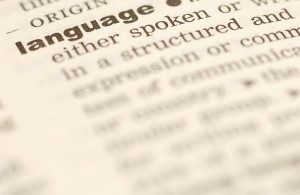By Michael Peabody

[dc]I[/dc]n the book, 1984, George Orwell paints a bleak portrait of a future where Big Brother is watching everything you do, and the thought police can practically read your mind. In order to gain the support of the population, an ironically named Ministry of Truth twists the meaning of words to make terrible concepts seem acceptable with slogans such as War is Peace; Freedom is Slavery; and Ignorance is Strength.
In 2005, there may not be an American Ministry of Truth, but in recent years the words that we used to describe our freedoms have been redefined to mean very different things.
For Adventists, the concept of religious liberty has long been defined as the God-given right of each and every person to practice his or her religion, or no religion at all. Liberty Magazine, now in its 100th year, has steadfastly promoted this definition. Yet some others have loosely defined the term “religious liberty” as the freedom to impose a certain brand of religion on the government, and ultimately, on its citizens.
And while the vast majority of American Christians rally under the banner of “religious liberty,” a recent study found that many would limit the freedom of those with differing beliefs. The study, commissioned by Cornell University, found that 42% of highly religious American Christians believe that Muslim Americans should register their whereabouts with the government, and nearly 44% of all respondents believed that the government should limit the civil rights of Muslims, including profiling individual citizens based on being Muslim, monitoring Mosques, and infiltrating Muslim civic and volunteer organizations. Perhaps most troubling, the study found that the more religious somebody claimed to be, the more likely they were to favor curtailing the civil liberties of Muslims.
This emerging lack of tolerance is not unforeseen given the shear volume of fear that followed the attacks of 9/11, but as these sentiments reach critical mass, there are striking implications for people who may find themselves outside the orbit of fundamentalist Christianity even though it envisions itself championing “religious liberty.”
As Martin Luther King, Jr. eloquently stated, “Injustice anywhere is a threat to justice everywhere. We are caught in an inescapable network of mutuality, tied in a single garment of destiny. Whatever affects one directly, affects all indirectly.” When the liberties of other religious groups are threatened, ours are too.
History “where everything unexpected in its own time is chronicled on the page as inevitable” has borne out the results of political, religious, and cultural intolerance in the blood of millions and demands our continual vigilance as we navigate through this precarious time.
Orwell’s fictional concept of the future is over 20 years past due, but at the end of the day, terms such as “liberty” and “freedom,” remain fragile concepts, finding their interpretation only through the language of the culture. It is up to us to break through the confusion and demonstrate what true religious liberty looks like.
###
At the time of this writing, Michael D. Peabody was the Associate Director of the Public Affairs and Religious Liberty department of the Pacific Union Conference. Originally published in the Pacific Union Recorder.
[1] See MSRG Special Report: Restrictions on Civil Liberties, Views of Islam, and of Muslim Americans. http://www.comm.cornell.edu/msrg/report1a.pdf. Released December 17, 2004.
[2] Philip Roth, “The Plot Against America,” Houghton Miflin, 2004. p. 114.
